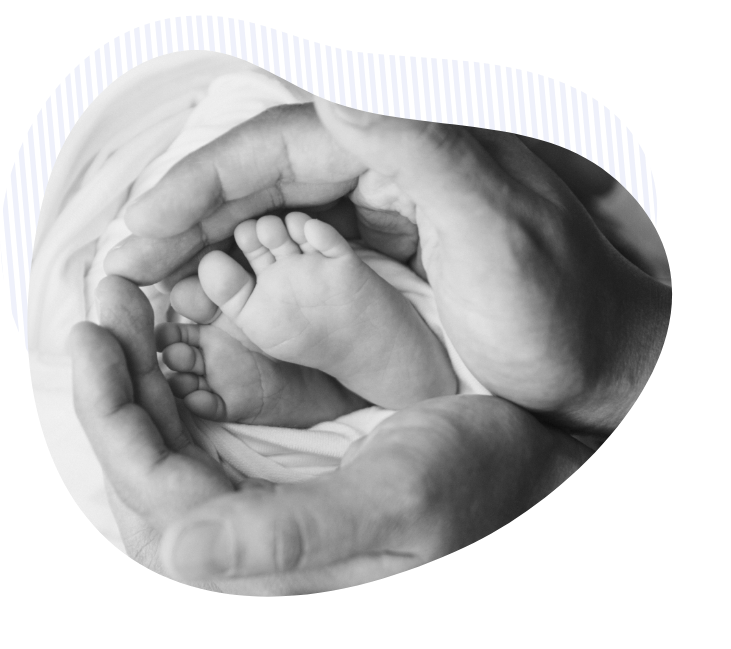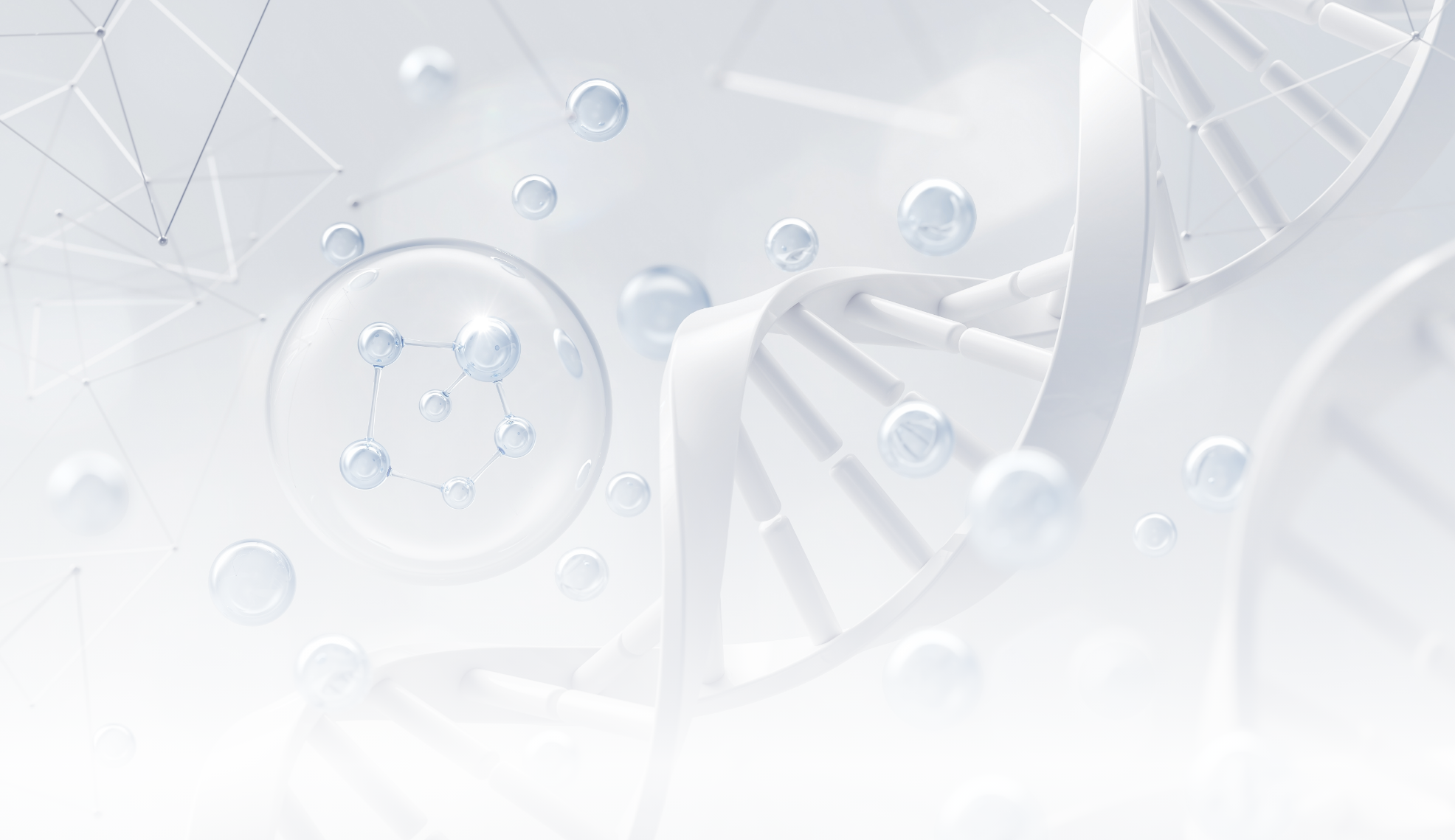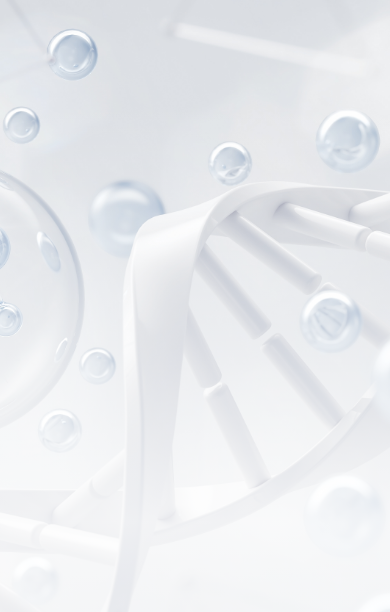






Preimplantation
Genetic Testing
with us.

Although this diagnostic method has been in use for a long time, American Hospital Dubai now offers it for other purposes as well, including determining the cause of infertility, which can help doctors to create a personalized treatment plan tailored to a couple’s specific needs. Read on to find out how Preimplantation Genetic Testing help our clinicians ensure the safety of a newborn.
Normally, each cell in the human body contains 23 pairs of chromosomes; half come from the male and half come from the female. Sometimes this number of chromosomes is altered, which can cause implantation failure, miscarriage, and various complications in the embryo and fetus during pregnancy.
Our hope
in Preimplantation Genetic Testing
To detect alterations in the number of chromosomes, IVF Genetics is indicated. It refers to the combination of IVF (in-vitro fertilization) and PGT (preimplantation genetic testing) diagnosis and is administered to detect alterations in the number of chromosomes in the embryo and determine the cause of frequent miscarriages or previously unsuccessful IVF cycles.

Why Should I Seek Preimplantation Genetic Testing?
A woman should seek an in-vitro fertilization together with the PGT-A test in the following cases: Aged 35 and older; Have received two or more cycles of assisted reproduction treatments, but remained unsuccessful to achieve pregnancy; Have suffered miscarriages for unidentified reasons; Have had a pregnancy with chromosomal abnormalities. Whereas, a man should seek IVF genetics if he has a low sperm count.

Benefits of Preimplantation Genetic Testing
Genetic testing can be beneficial for many reasons, as it can: Help to determine a couple’s viability for a healthy child; Aid in determining the cause of frequent miscarriages; Help to determine the cause of previously unsuccessful IVF cycles; Help in the detection of a chromosomal disorder, like Down Syndrome; Can diagnose causes of infertility and help clinicians to create an individualized treatment plan, tailored to a couple’s specific needs and expectations.

Advantages of Receiving Preimplantation Genetic Testing
Preimplantation Genetic Testing offers higher pregnancy rates than conventional diagnostic methods. With the help of this testing, the best-looking, as well as chromosomally normal embryos, are transferred. This reduces the chance of undergoing several cycles of assisted reproductive treatments.
 It promotes embryo implantation; consequently, the likelihood of pregnancy
It promotes embryo implantation; consequently, the likelihood of pregnancy
 Reduces the risk of miscarriage
Reduces the risk of miscarriage
 Optimizes the likelihood of having a healthy baby
Optimizes the likelihood of having a healthy baby


How Does IVF Genetics (IVF + PGT) Work?
1
STEP
STEP
At your first consultation with a fertility specialist at American Hospital’s IVF with Livio Fertility Center, the doctor will collect information about your medical and family history, as well as analyze reports of previous reproductive treatments, if any. This will be followed by a thorough gynecological exam of a woman, along with a sperm analysis of a man. Based on the information received, your doctor will brief you about the commencement of the treatment plan, and address all your concerns every step of the way.
2
STEP
STEP
Hormone injections are administered to stimulate the development of multiple ovules. After 10 or 12 days, ultrasound and blood tests are conducted to examine the development of eggs. When eggs have reached the adequate number and size, a dose of the hormone hCG is administered for the maturation of eggs, and the follicular puncture is scheduled after 36 hours.
3
STEP
STEP
Puncture is a small intervention, performed in the operating room while the patient is given sedatives to avoid any discomfort. The doctor will access the ovaries through the vaginal cavity with ultrasound guidance and puncture follicles to collect eggs in tubes. The egg samples are sent to the in-vitro fertilization laboratory, while the patient gets some time to rest before being discharged from the hospital to resume routine life.
4
STEP
STEP
Once the eggs and sperm have arrived at the in-vitro fertilization laboratory, they are fertilized using intracytoplasmic sperm injection (ICSI), which involves the individual selection of the best sperm and then its placement inside each ovule.
5
STEP
STEP
Next comes embryo culture. For 5 to 6 days, the embryologists monitor the development of embryos and then subject them to biopsy in order to extract a small number of cells for genetic (PGT-A) analysis. After the biopsy, the embryos are vitrified. In ten days, the test confirms that the number of chromosomes in the embryos is correct, or detects if there’s any abnormality in chromosomes. When the embryo turns out to be normal, it is devitrified and placed into the woman’s uterus.
6
STEP
STEP
You’ll be scheduled for a blood pregnancy test, usually two weeks after the placement of the embryo.

Book an Appointment
At American Hospital, we are committed to delivering safety and efficacy in our assisted reproduction treatments. If you’ve experienced missed pregnancies or undergone multiple IVF treatments but with no success, book a consultation with our Reproduction Specialists at American Hospital using our secure web form, to improve your chances of conceiving a healthy baby!
BOOK NOW






